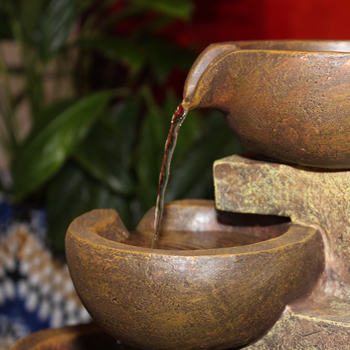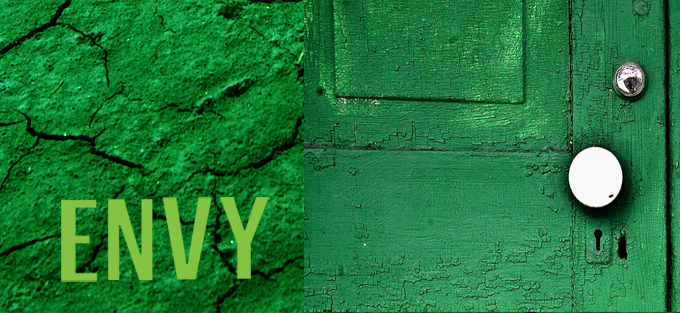by Emily Carson
Envy is dehydrating to the both the body and the soul. To envy is to want what someone else has; it is to believe that whatever we have is not enough–that we need to do more and be better. Envy is painful and exhausting, and it doesn’t bring out our best selves.
Envy shines a spotlight on all our self-doubt and insecurity. In my own journey, envy bubbles up in my stomach and makes me queasy and uncomfortable. It shows up at inopportune times. Envy is a gross sort of feeling, and I wish I had a secret recipe to permanently quash it. But I haven’t yet found the cookbook.
Envy in the Bible
The Bible has plenty of stories with envy at their root. A short list of biblical examples of envy includes Cain/Abel, Jacob/Esau, Joseph/his brothers, Sarah/Hagar, Mary/Martha, and that handful of disciples who argue about who’s the greatest (lucky for them, they didn’t get explicitly named).
Envy is such a toxically timeless element of life that it even makes it into two of the Ten Commandments in the guise of “coveting.” All forms of coveting are off-limits. Property-coveting. Spouse-coveting. Animal-coveting. Our modern-day ears might add vacation-coveting, technological gadget-coveting, and beautiful hair extension-coveting, just to name a few. In Exodus, God makes it clear that it’s a definite no-go when it comes to wanting what someone else has.
Martin Luther adds another layer of meaning to these commandments in his Large Catechism when he states, “Thus these commandments are especially directed against envy and miserable avarice, God wishing to remove all causes and sources whence arises everything by which we do injury to our neighbor.”
Not only does envy cause pain and harm in our own lives, it often leads us astray in ways that can cause injury (emotional or physical) to others.
Reducing envy’s power
 Limiting envy’s power begins with reframing our relationships with ourselves. The more secure we feel about ourselves, the less likely we are to want the lifestyle, body or possessions of someone else. Our most rooted identity was bestowed upon us by our Creator.
Limiting envy’s power begins with reframing our relationships with ourselves. The more secure we feel about ourselves, the less likely we are to want the lifestyle, body or possessions of someone else. Our most rooted identity was bestowed upon us by our Creator.
In our baptisms, we were not only welcomed into the family of God, we were also blessed with the sustaining presence of the Holy Spirit–“the spirit of wisdom and understanding, the spirit of council and might, the spirit of knowledge and the fear of the Lord, the spirit of joy.” The sign of the cross was made on our foreheads and we were sealed by the Holy Spirit and marked with the cross of Christ forever. This is a big deal. And this eternal identity is worth calling to mind when we’re overcoming envy’s pervasive ways.
Our baptismal identity confirms that we are eternally claimed, loved and valued. This is a sort of envy vaccine. It protects us from the need to seek out additional means of measuring our worth. Our Creator gifts us with confidence rooted not in possessions or appearance–but in our deep and abiding value to God.
The next time you feel envy rising up, trace the sign of the cross on your hand, forehead or the corner of your notebook. Remind yourself that you are already more than enough. You are already loved, blessed and sealed with a cross that means you are immeasurably, eternally valuable. Believe this truth and share it with others.
Discussion questions:
1. Why do you think envy is such a common theme in the Bible?
2. What friendships and relationships in your life bring out your most rooted, grounded, secure self? How can the church be a place that nurtures this kind of identity-building environment?
3. How might your identity as a beloved child of God help you in overcoming envy in the future?
Closing prayer:
God who values us abundantly, sometimes we struggle to value ourselves. Our lack of self-acceptance leads us to envy the lives of others. But envy is exhausting. You have claimed us your beloved daughters. We don’t have to earn this identity. It is a gift. Equip us to value ourselves so that we might help our sisters around the world to do the same.
The Rev. Emily Carson serves as director of communications for the Southeastern Minnesota Synod and weekly columnist for the Rochester Post-Bulletin. Her hobbies include hiking, writing and growing vegetable sprouts indoors. Emily’s blog is www.holyeverything.com.
Photos by A. Strackey, Robin Orchard, Ertru and Elizabeth McBride. Used with permission.


Thanks Emily. What a great message. I know I struggle with envy at times. Thanks for sharing.